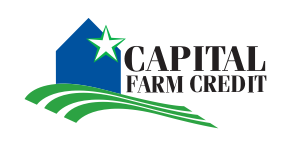Prepare for Your Next Career Move

Interested in a career with #teamCFC?
Visit our website to learn about Capital Farm Credit including our current career listings.
Want to ace your next interview and land that dream job you've been eyeing? Senior HR Generalist Amanda Blum offers valuable pointers and advice on all things career search.
"You never get a second chance at a first impression," says Blum. Your resume and cover letter are often that first impression to a potential employer and should be taken seriously. "If you want to land an interview, and ultimately a job, concentrate on one step at a time, the first being your cover letter and resume," she adds.
Tips when creating or updating your resume and cover letter.
Tailor your resume to the position you are applying for.
Someone applying for a general counsel position should have a structured professional resume. The resume of an event planning professional or graphic designer position, on the other hand, could use more playful fonts or structure.
"Either way," Blum says, "avoid multiple colors and fonts or graphics." You want to put a professional first foot forward and make it easy for the potential employer to read.
The actual structure of the resume is important too. Bullet points are often more effective than paragraphs and allow a potential employer to more easily determine your skillsets. The use of fonts and bolded text can also make your resume easier to digest.
Be specific with job descriptions and experience when concentrating on the content of your resume.
Generalities can make you seem ambiguous or even ungenuine. Specific information gives hiring managers a clear picture. What did you do in your previous position(s)? How does it relate to the position you are applying for?
Don't undervalue the importance of a cover letter.
A cover letter is a one-page document that introduces a job seeker's work history, professional skills, and personal interest in applying for a position. Hiring managers and recruiters use cover letters, paired with resumes, to screen applicants.
A compelling cover letter will sell you as the perfect candidate, showcase your unique personality, and impress hiring managers. Be intentional with your cover letter and let the hiring team know why you want the position and what sets you apart. If relocating is part of the position you are applying for, don't hesitate to talk about your willingness (or not) to do so.
Like your resume, also tailor your cover letter to the position you are applying for. Whatever you do, aim for a natural-sounding approach and a light touch. While you shouldn't be afraid to let some of your unique personality shine through your cover letter, strike the right tone and remain professional.
If you find yourself at the interview stage, congratulations! Proper preparation will set you up for success. Below, Blum provides an overview of how to approach interviews.
Concentrate on professional communication from the start.
When you are in the process of scheduling your interview, ensure your voice mail is appropriate and professional to put your best foot forward if you miss a call. It's also important to be professional and prompt in email correspondence as well as phone communication.
Once your interview is scheduled, dress for success. Blum offers a few tips:
- Dress for the position you're interviewing for. Like your resume and cover letter, cater your presentation (from paper to appearance) to the position.
- As a rule, Blum recommends the following: men should wear a button up shirt with tie and slacks while women should wear a blouse with conservative skirt or dress slacks.
- All-in-all, put effort into your appearance. A picture is worth a thousand words. "Seal the deal with your interview," says Blum. "A polished appearance is a key part."
Be punctual and prepared
"On time is late," says Blum. Plan to be at your interview 15 minutes early to ensure you are not rushed. If necessary, plan for traffic and map out your route to ensure timely arrival.
Be prepared. Study the company you are applying at. Look at their website and social media pages to gain understanding of what they do, their history and structure. Take time to review the duties in the job posting to ensure you fully comprehend the position you are interviewing for. You can also do an online search for similar positions to gain a better understanding.
Don't be afraid to be authentic
"If you are coming out of college," says Blum, "you may have had a lot of coaching and/or interview prep. It's important to be polished, but don't be afraid to show personality and engage in the interview versus being too premeditated in your actions, answers and questions." Blum offers this advice, "be prepared for the discussion, but be genuine in your interview."
Last, but not least…
If you don't have experience related to a question, be honest. "You can say," says Blum "I don't have current experience in that situation, but if I were in that situation, I would handle it like this." Also don't be afraid to say I don't know. If you truly don't know the answer to a question or can't relate, be honest and don't be afraid to say I don't know. "It's important though," says Blum, "to say you will find out that answer and follow up with them." If you make this comment, be sure to touch back in a timely manner.
Don't be afraid to ask questions. The interview should be an opportunity for you to learn about the company as well. "Ask why the hiring team likes working for their respective company," says Blum. If you engage in questions, you'll leave the interview with insight of what you might like about working at the company and have a better understanding of the culture.
Applying for positions, prepping resumes and writing cover letters are all steps in the job process. With the right preparation, seeking out your next career move may be easier than you think.
